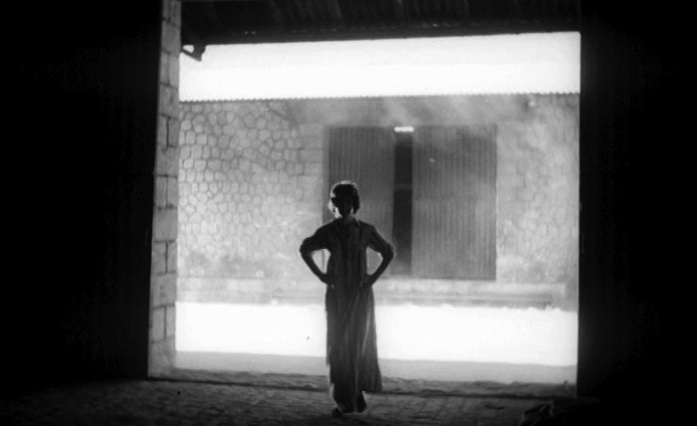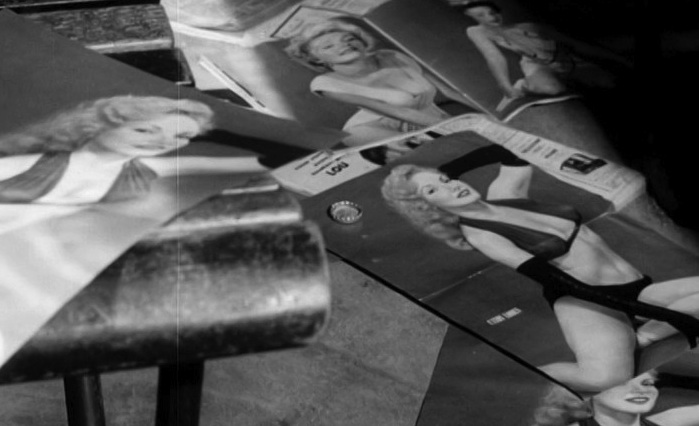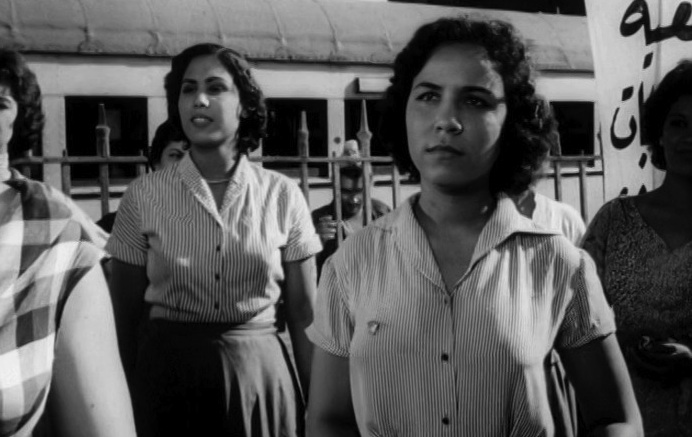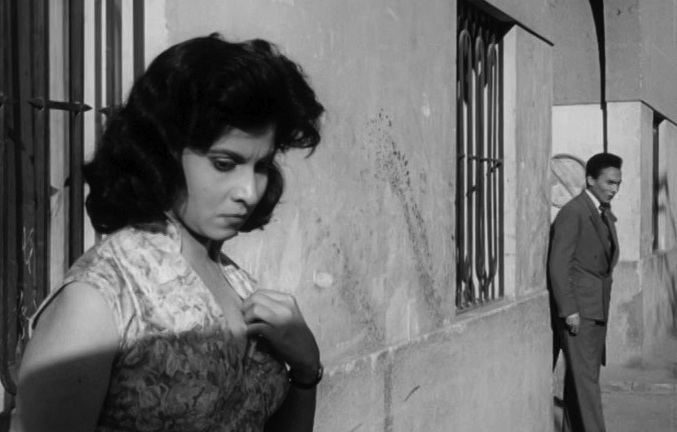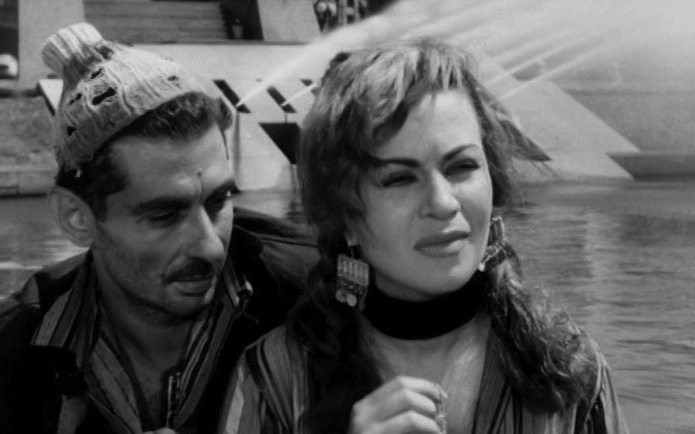We are at a critical juncture in the political and social history of Egypt. People are fighting for a better way of life, protections against corruption and more rights for women. There’s also an ongoing struggle to define the future of the country: Will it align itself with Western influences or be a paragon of Arab Nationalism, or fall somewhere in between? And during this moment of upheaval, will an undercurrent of violence and chaos sabotage the nation’s ability to thrive? While it may sound like the Egypt of 2013-2014, it is the year 1958, and the backdrop of Youssef Chahine’s mid-century classic Cairo Station (Bab el hadid).
Reportedly underappreciated when it was originally released, the film has been since heralded as one of the filmmaker’s best; it was voted the highest ranking Arab film in Sight & Sound’s 2012 Critics Poll and was screened in Cannes in 1997 as part of Chahine’s lifetime achievement award. And though Cairo Station’s rediscovery by cinephiles has been attributed to its filmmaking artistry and bold mix of genres (call it a social realist, film-noir thriller/melodrama), the film is especially worthy of revisiting in light of Egypt’s political turmoil. In fact, an article posted at Keyframe in February 2011 by Simon Abrams highlighted the film’s currency in the wake of the country’s revolutionary outbreak at the time. Now, sadly, more than three years later, the film’s scathing look at societal breakdown only feels more prescient.
The film’s primary plotline appears to lack any political content. A lame and lonely man, Qinawi (played with pathos by Chahine himself), works as a newspaper seller in the train station. He lives in a small shack on the premises and lusts after the bodacious Hanouma, a big-spirited beauty who illegally sells bottles of soda pop to passersby and is engaged to marry the strapping Abu Serih, who works as a porter in the station. As the film progresses, Qinawi’s sexual frustrations build from a kind of childish scopophilia—his shack is surrounded by pictures of American pin-ups and bathing beauties—into a violent voyeuristic rage.
But set within an era of political change, Chahine’s film is more than its surface psychosexual thriller plotline suggests. Made in the wake of the country’s 1952 military coup d’etat, which overthrew the Egyptian monarchy, and two years after new Prime Minister Gamal Abdel Nasser’s constitution granted women’s suffrage and prohibited gender-based discrimination, Cairo Station expresses the country’s anxieties and dreams, both then and now.
“You can’t be happy with the way things are,” declares Abu Serih, at one point, as he fights to unionize the station’s workers. In one of the film’s many subplots, Serih stands up against the station bosses, trying to rally support for better treatment and equality among the workers. “Why can’t we be independent,” he implores. It’s hard not to see Serih’s struggles echo with the idealists of Tahrir Square 2011.
The role of women in Egypt also plays a significant part within the film’s social fabric. At one point, a group of women are seen in the station with a banner that reads, “Organization of Women Against Marriage.” One lady, wearing what looks to be a man’s suit, decries the role of the “the rural wife” as “an unprecedented example of subjugation.”
But Cairo Station is no Salt of the Earth, Herbert Biberman’s feminist and pro-worker drama from 1954; it’s far more cynical, with Serih, at one point, overpowering Hanouma and putting her in her submissive place, and his utopian union goals sidelined first by the jealous Qinawi and then the station boss’s anti-union toughs, who brutally beat him down.
One of the film’s most famous sequences reflects a similar trajectory from idealism to pessimism. Qinawi and Hanouma sit aside a reflecting pool outside of Ramses Station, which is dominated by an impressive statue of the legendary pharaoh. Against this symbolic backdrop of national pride, Qinawi proposes marriage to Hanouma, offering her a necklace and the promise of a tranquil domestic life outside the city. The flirtatious Hanouma smiles and plays along with the pathetic Qinawi, and for a brief moment, it seems the two—who are similarly disenfranchised—may be connected in their dreams for a better future. But then Hanouma shatters the illusion, telling him that she will be marrying Abu Serih. In actuality, Qinawi never had a chance. As Joel Gordon writes in his journal article, Broken Heart of the City: Youssef Chahine’s Bab al-Hadid , his illuminating study of the film, “How can he compare to the porter, let alone the pharaoh? What place is there in the new Egypt for a crippled orphan?”
Indeed, by making Qinawi, who is an emasculated, poverty-stricken and mentally unhinged man, the center of the film, Chahine has crafted a portrait of Egypt’s new era as conflicted and uncertain.
At times, the film is funny, sexy, buoyant, and modern. Two Islamic fundamentalists passing through the station come across as backward—the Muslim Brotherhood, as today, was demonized and persecuted under Nassar’s reign. There’s a poster of Marilyn Monroe’s Niagara on one of the station’s walls, and a rocking scene involving Egypt’s own rock band, Mike and the Skyrockets, which starts off with all smiles and dancing, then, as with the rest of the film, eventually descends into the noir-ish macabre.
If Cairo Station is set on the brink of a new Egypt, and the hope that comes along with that moment of change, it also conveys a period fraught with painful realities and shattered dreams. Unfortunately, the headlines coming out of Egypt today—“Deadly blasts at Cairo University,” “Why Egypt is in a spiral of despair”—suggests that Chahine’s film may be more relevant than ever.

